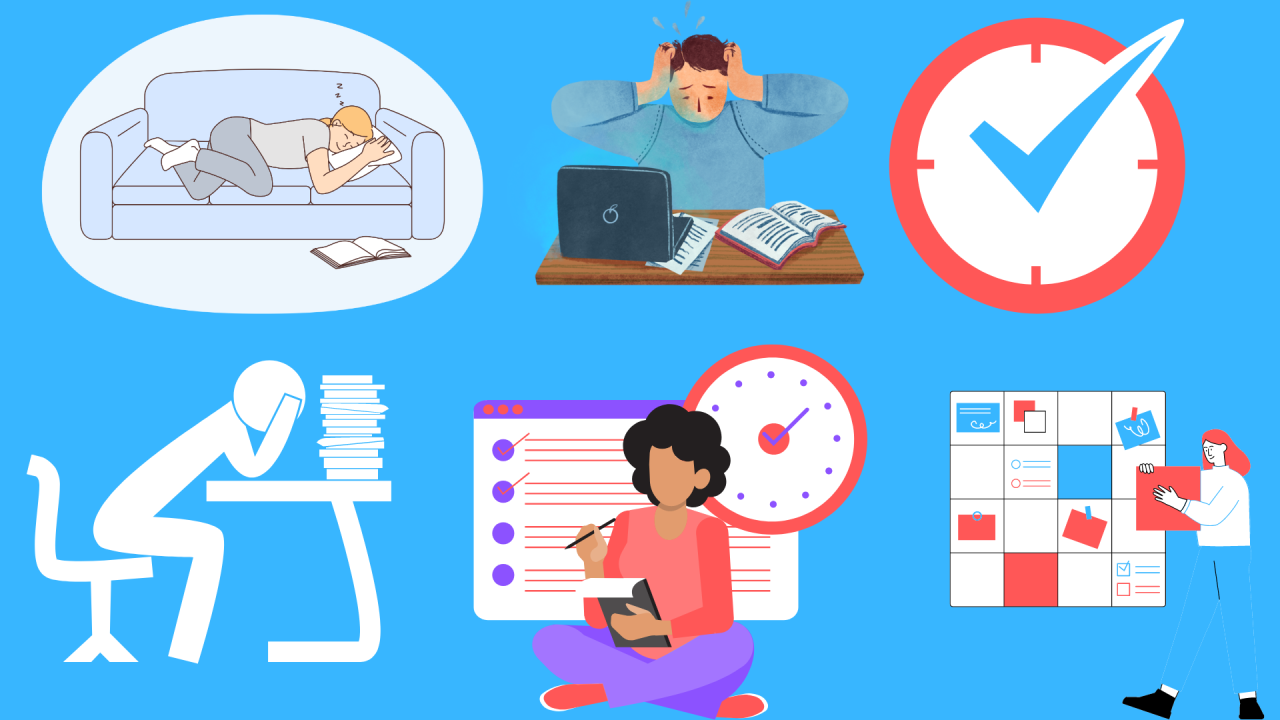What is Procrastination?
According to the Merriam-Webster dictionary, procrastination means intentionally and habitually postponing or putting off something that needs to be done. In simpler terms, it’s delaying what you can do today until tomorrow.
While I’m not an academic expert on the subject, I’ve been a procrastinator for years. I’ve learned from my experiences and want to share insights to help readers recognize their own procrastination tendencies, understand their causes, and learn how to overcome it, as well as how to assist their teams in doing the same.
Most of us are aware when we replace important tasks with trivial and sometimes pointless ones. For example, you know you need to prepare an essential report for a client, but as soon as you open your computer, the 25 browser tabs distract you. You end up reading an unfinished article, making coffee, answering emails, and checking social media, and before you know it, the morning is gone.
We all have stories like this, where we’ve postponed crucial tasks for less important ones, but why does it happen?
Why Do We Procrastinate?
Procrastination might seem like a result of laziness or an overload of distractions, but it’s a more complex phenomenon. Each person’s procrastination patterns are unique, influenced by various factors like frequency, the type of activities we engage in, and other individual variables. Identifying the reasons behind your procrastination is the key to overcoming it.

First Recommendation:
Drawing from personal experience, I’ve identified elements that helped me uncover my reasons, and I hope they assist you in discovering yours.
The first step is to consciously observe yourself and recognize when you’re procrastinating, what tasks you tend to procrastinate, and what activities you replace them with. Try keeping a simple log, like a procrastination journal, for a week or two. Initially, don’t change your normal behavior; just observe and record. After a few days, start identifying common patterns and factors unique to you. Ask yourself honest questions:
- How often does procrastination occur?
- How do you feel when you realize you’re procrastinating?
- Which tasks do you procrastinate the most, and what do you replace them with?
- How do you feel and what thoughts come to mind when you replace tasks?
- Is there a specific time of day when you’re more prone to procrastination?
- Are external distractions or internal fears influencing your decision to delay tasks?
The first recommendation is to consciously observe, record, and analyze to identify your own reasons. As Simon Sinek would say: Start with “why.”
How Does Procrastination Affect Your Work?
Consider three interconnected dimensions: “I” (how it affects you), “We” (how it impacts your relationships and interactions with others), and “It” (how it affects your results, efficiency, productivity, and the value generated by you, your team, or your organization).
- In the “I” dimension, procrastination increases stress, exhaustion, guilt, anxiety, damages self-esteem, and can lead to depression. It can become a negative spiral where higher stress and anxiety levels lead to more frequent procrastination, making it harder to analyze its causes.
- From a “We” perspective, procrastination erodes trust due to the high likelihood of not meeting commitments, triggers conflicts, and hinders team efficiency.
- In the “It” dimension, by postponing the initiation, continuation, or completion of tasks, the results may be ineffective, untimely, or nonexistent.
How to Overcome Procrastination: Strategies to Stop Procrastinating at Work
Remember that what works for one person may not work for another, and what’s effective for you today may not be as effective in the future. Keep these recommendations in mind:
Overcome Procrastination at Work by Reducing the Inflow of Tasks
- Define your purpose, goals, and priorities. Use tools like IKIGAI for clarity.
- Recognize your abilities and limitations.
- Assess your capacity and relevance to your goals before committing to a deadline.
- Master the art of saying no, respectfully and honestly.
- Negotiate task scope or deadlines if your analysis suggests they’re unachievable.
Stop Procrastination at Work with Effective Focus on Important Tasks
- Prioritize tasks using clear criteria and tools like the Eisenhower Matrix or another prioritization technique.
- Remember one of the principles of the agile manifesto: “Simplicity – the art of maximizing the amount of work not done – is essential.” This means leaving tasks for tomorrow that aren’t essential today. Your capacity and energy are limited, so use them for what truly matters.
- Establish time blocks of less than an hour to work deeply on your tasks, alternating focused work with breaks. For more ideas, see: Time Management Techniques
- Avoid multitasking and concentrate on one task at a time.
- Create and maintain a work environment free of physical and electronic distractions. Turn off notifications and close apps or browser tabs unrelated to your task.
- Practice conscious attention. Distractions may appear, but refocus without judgment.
- Limit work-in-progress tasks (WIP) and start a new task only when you’ve completed one, using a pull system.
Avoid Procrastination by Ensuring a Steady Flow of Completed Important Tasks
- If a major task feels overwhelming, break it down into smaller tasks to feel a sense of accomplishment and maintain enthusiasm.
- Always prioritize tasks you’ve already started; stop starting and start finishing.
- Celebrate your successes and achievements with a symbolic gesture, such as ringing a bell or smiling. Use a Celebration Grid to track your behaviors, successes, failures, and learnings.
- Consciously observe your routine and review pending goals or activities you’ve been procrastinating.
How to Help Your Team Stop Procrastinating?
Fostering a proactive, focused team is vital for maintaining productivity. Here’s how to help your team combat procrastination and thrive together:
Help Your Team Stop Procrastinating by Leading by Example
As a leader, your actions speak louder than words. By sharing your own experiences with procrastination, you create a safe space for open discussions. When your team sees that you’re not immune to procrastination and are actively working to overcome it, they are more likely to follow suit. Your example can inspire them to take action and address their procrastination tendencies.
Help Your Team Overcome Procrastination by Fostering Accountability
Encourage a culture of accountability within your team. Have employees share their goals and progress with a trusted colleague or supervisor. This mutual accountability can serve as a powerful motivator to stay on track and reduce procrastination. Knowing that others are aware of their commitments can boost individual and collective commitment to completing tasks in a timely manner.
Help Your Team Stop Procrastinating by Establishing Team Strategies
Procrastination is not a solitary struggle. Experimenting with strategies as a team can have a profound impact on both personal well-being and team dynamics. When team members collaborate to find solutions, they can share insights, support one another, and collectively strive for outstanding results. By addressing procrastination together, you foster a sense of unity and shared purpose.













Replies to This Discussion